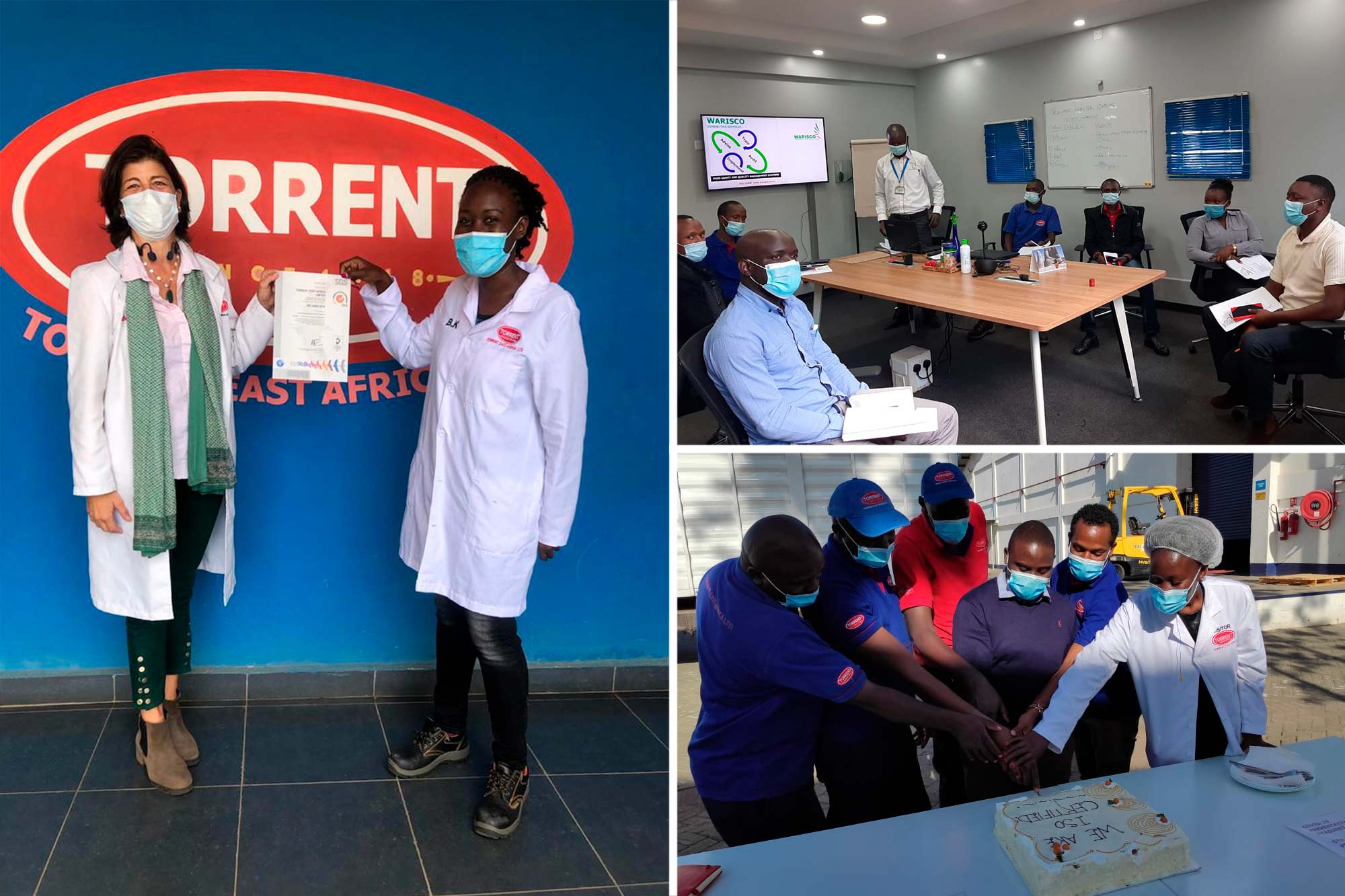After a huge effort taking over a year, our headquarters in Kenya, Torrent East Africa, where we produce our Nip capsules, has managed to obtain the ISO 22000 certification:2018 standards certification from the accredited international body, SGS, as recognition of the organization’s Food Management System.
What is the ISO 22000 certification standard?
The standard’s objectives are to comply with the principles of the Codex Alimentarius, a collection of standards and good practice, compiled and updated by the FAO; these are internationally recognised as a benchmark for food production and safety. Also, to provide an auditable standard for companies involved in the food chain, therefore guaranteeing food safety and safe food preparation.
Obtaining an ISO 22000 certification entails huge recognition for any company and requires decisiveness, management and considerable effort from all areas of an organization. In the case of Torrent East Africa, the target has been met after almost a year-and-a-half of work on this project (begun in February 2020), bearing in mind that the preparation process for the certification coincided with the COVID-19 pandemic, which meant several challenges and obstacles needed to be overcome.
However, the team worked tirelessly to implement the standard requirements and succeeded in obtaining the certification in March 2021. They have shown that our Food Quality and Safety management systems are important components in our organization and can help to provide better processes that optimize performance and, as a key objective, increase customer satisfaction.
What does being ISO 22000 certified mean?
Unlike other ISO certifications, the ISO 22000 standard does not set the same and mandatory requirements for all companies, as the standards and procedures required for high-risk areas of one food industry may not be appropriate for others.
Therefore, whilst some ISO standards act as a check list, in the case of the 22000, the standard asks specific questions concerning the branch and the region where food is produced. If a company expresses its intention to obtain a ISO 22000 certificate for its production processes, it needs to monitor the laws of the local and export markets as well as the specifications and requirements of its customers. The ISO 22000 standard requires an organization to specifically adapt to the needs of the industry of each type of food product.
The ISO standard is generic, and is therefore applicable to any company within the food chain. The standard in question is closely linked with other ISO standards, such as the 9001 for Quality Management Systems or the 14001 for Environmental Management Systems, which work together to guarantee the quality of products and services on offer. The 2200 facilitates the implementation of concepts and principles in the Codex Alimentarius drawn up by the FAO and in the HACCP system, recommended and developed for use by the World Health Organization.
For any company that obtains this certification, it signifies added value for the brand and a trusted endorsement for customers, given that having the stamp of approval from a 22000 standard means that the organization has developed fluent communication through its supply chain, optimized resources at an internal level, ensured transparency and competitiveness throughout the food chain, applies processes that comply with the principles of the HACCP code and performs rigorous risk analyses in the monitoring measures taken. This ultimately translates into better products and meeting the objective of deserving the customer’s full trust.
